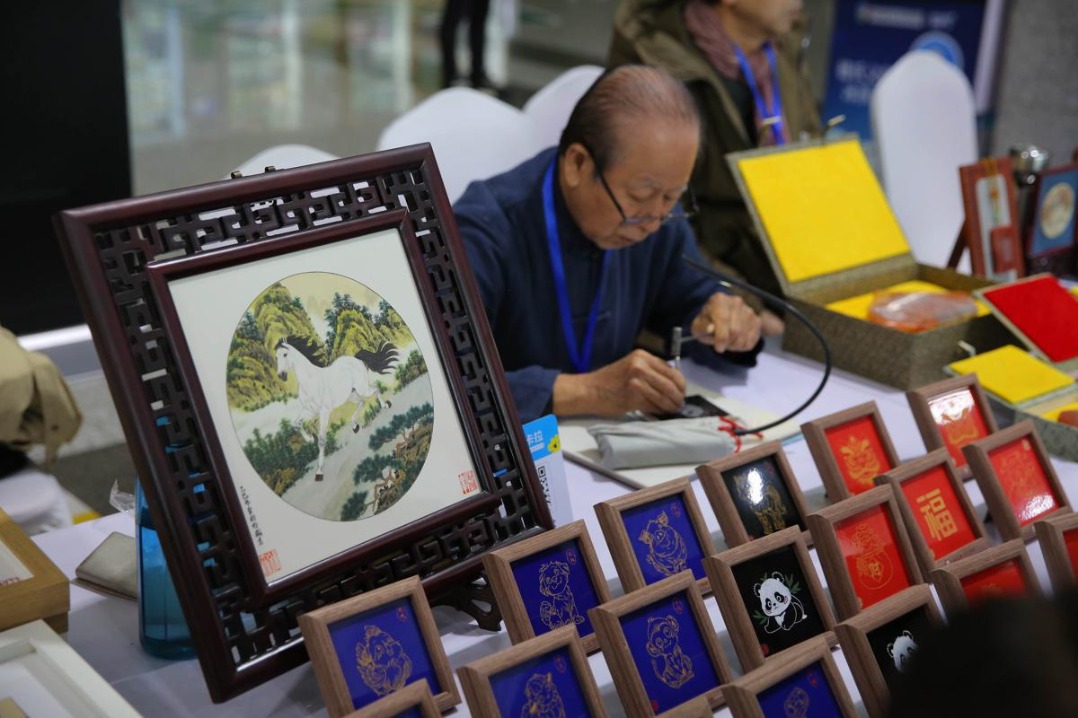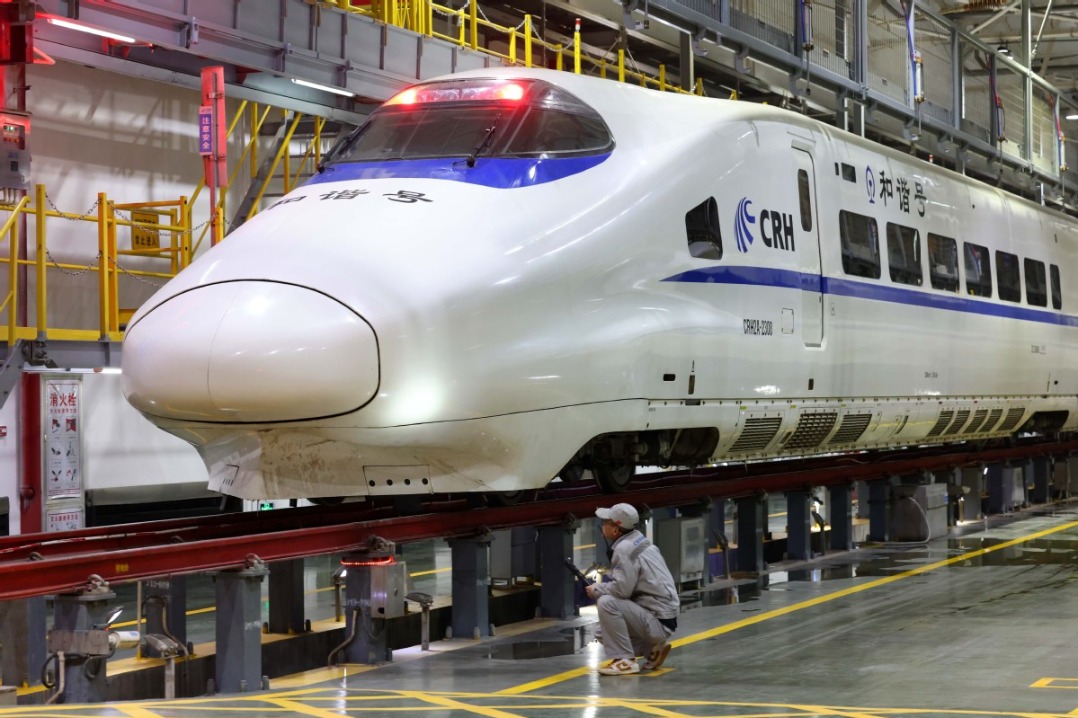Key economic tasks set out by leadership
Political Bureau highlights domestic demand, emerging sectors, opening-up

A key meeting of the Communist Party of China pledged on Tuesday to step up macroeconomic support in the second half of this year, with greater focus on expanding domestic demand, cultivating emerging sectors and widening opening-up in a bid to meet the nation's annual growth target for 2024.
The economic priorities were set out as the Political Bureau of the CPC Central Committee held a meeting to analyze the performance of the world's second-largest economy.
Xi Jinping, general secretary of the CPC Central Committee, presided over the meeting, two weeks after the third plenary session of the 20th CPC Central Committee adopted wide-ranging policy measures to forge ahead with the nation's reform and opening-up drive.
According to a statement issued after the meeting, the CPC leadership highlighted challenges including mounting negative factors from the external environment, lack of effective demand domestically, lingering risks in key sectors and "growing pains in the transition between old and new growth drivers".
"We must enhance our awareness of risks and worst-case scenarios, come up with proactive responses, maintain strategic resolve, and strengthen our confidence in development," the statement said.
The policymakers required fully leveraging the role of economic structural reform as the spearhead and promptly introducing a series of reform measures that are "mature, effective and achievable".
They emphasized the need to encourage entrepreneurship and move faster to help Chinese companies become world-class through reform, innovation and fair competition.
More effective macroeconomic policies must be consistently carried out, focusing on the issuance and use of special-purpose bonds, improvement of the fiscal expenditure structure and financial support for the real economy, the statement said, adding that the exchange rate of the renminbi should remain generally stable at an adaptive, balanced level.
Provincial-level regions serving as economic powerhouses should continue to take the leading role in economic development, the policymakers said.
To boost domestic consumption, they also said economic policies should focus on increasing the incomes of residents through multiple channels and spurring spending in sectors such as tourism, elderly and child care, housekeeping and other services.
While calling for cultivating more emerging industries and future-oriented industries, they warned against "vicious competition" among peer companies.
They required removing all market access restrictions for foreign investment in the manufacturing sector and promoting trials and demonstrations for expanding opening-up of the service sector, in order to stabilize the inflow of foreign investment.
Regarding the real estate sector, the meeting stressed efforts to ensure the delivery of housing projects and accelerate the development of a new model for the sector.
It called for steps to improve and implement comprehensive local debt resolution plans and create conditions to expedite the mitigation of debt risks associated with local government financing platforms.
"We must strengthen assistance and support for low-income populations and develop a tightly woven social safety net," the statement said.
The meeting also reviewed a set of provisions on rectifying formalism to alleviate the burden on the grassroots level, emphasizing that pointless formalities and bureaucratism that affect the implementation of the Party Central Committee's decisions and plans must be firmly rectified.
Prior to the meeting, the CPC Central Committee held a symposium on Friday with non-CPC personages to seek opinions and suggestions on the country's current economic situation and economic work for the second half of the year.
Xi, who presided over the symposium, said the difficulties and challenges that China's economic development is currently faced with are problems that arise during the process of economic development and transitioning, and can certainly be overcome through persistent efforts.
China has targeted its economic growth at around 5 percent for 2024. Official data showed that the country's gross domestic product grew 5 percent year-on-year in the first half of the year.
Looking to the next half of the year, Zhou Maohua, a researcher at China Everbright Bank, said the policy focus will be on stabilizing growth, preventing risks and deepening reforms.
Citing measures mapped out by the key meeting, such as speeding up the issuance of local government special bonds and driving large-scale equipment upgrades and trade-in deals for consumer goods, he said the moves will help stimulate market vitality and strengthen the growth momentum for consumption and domestic demand.
Li Daokui, director of Tsinghua University's Academic Center for Chinese Economic Practice and Thinking, said the country is on track to meet its annual growth target of around 5 percent this year, as the country is poised to launch a number of policy measures to support growth in the remainder of the year.
Li said he remains "quite optimistic about China's economic growth in 2024", and he expects to see gradual stabilization in prices and recovery in confidence among businesses, investors and consumers amid strong policy stimulus in the next half of the year.
As the broader economy still faces headwinds, he said a package of measures is needed to defuse local government debt risks, boost consumer sentiment and stabilize the housing sector.
Contact the writers at mojingxi@chinadaily.com.cn
- Xinjiang reports highest foreign trade growth in China
- Harbin authorities demand return of pensions paid out to deceased
- Global research project on AI guardrails launched in Beijing
- Partnering with China, embracing opportunities
- China's cyberspace regulators announce measures for protection of minors
- Beijing's 'Rocket Street' promoted at aerospace conference



































